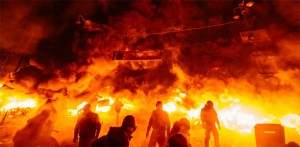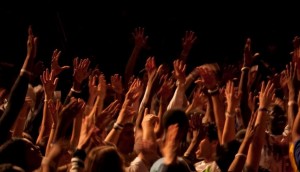12. Appearance & Attraction

Nor appearance that we should be attracted to Him. (Isaiah 53:2c)
Many uses of the word appearance has to do with a supernatural and divine quality. And I suspect had He manifest a divine appearance, He might have gotten our attention more readily. But Christ does not merely want your attention, He wants your heart.
It was the humility of the Son which allowed Him to “wear” the appearance of man, to become man. So if His appearance was exchanged, what would have gotten our attention?
The word attracted is most often translated as some for of desire. Another translation is precious, which reveals the nature of the One (or the thing) that has captured more than our attention; it (or He) has captured our desire. Do you desire the Lord? Is He precious to you? He desires you:
Or do you think that the Scripture speaks to no purpose: “He jealously desires the Spirit which He has made to dwell in us”? (James 4:5)
And you are precious to Him.
To that the proof of your faith, being more precious than gold which is perishable, even though tested by fire, may be found to result in praise and glory and honor at the revelation of Jesus Christ. (1 Peter 1:7)
If not His appearance, what then, would have attracted us to Jesus? It would have been His teaching, His miracles, and His manner of life. It all has to do with His heart. That’s what would have drawn us to Him. Even though the miracles were the attention-getters, they were the invitations to get to know Him more deeply, to walk with Him every day, and to abide in Him moment by moment.
Abide in Me, and I in you. As the branch cannot bear fruit of itself unless it abides in the vine, so neither can you unless you abide in Me. I am the vine, you are the branches; he who abides in Me and I in him, he bears much fruit, for apart from Me you can do nothing. (John 15:4-5)

 Last time, we discovered that the context of this verse places you squarely in the middle of a war. Maybe it’s for soldiers who are literally in the midst of a battle; or maybe it IS the end of the world as we know it; or it could be the spiritual battles that you’re in the midst of, which are seeking to overwhelm your soul and your heart. But Cease Striving does not merely call you to stop in the middle of a busy day; it calls you to stop whatever you’re doing, even in the midst of warfare.
Last time, we discovered that the context of this verse places you squarely in the middle of a war. Maybe it’s for soldiers who are literally in the midst of a battle; or maybe it IS the end of the world as we know it; or it could be the spiritual battles that you’re in the midst of, which are seeking to overwhelm your soul and your heart. But Cease Striving does not merely call you to stop in the middle of a busy day; it calls you to stop whatever you’re doing, even in the midst of warfare. The next thing that God brought was desolations in the earth. Now this word can also be translated as destruction, horror, and waste. Pretty intense. And why does he do this? To end the wars.
The next thing that God brought was desolations in the earth. Now this word can also be translated as destruction, horror, and waste. Pretty intense. And why does he do this? To end the wars. We now see the result of being lifted up—in plain sight—on a rock. It’s not a matter of sight; rather it is a matter of power. He has been exalted, set on high, over his enemies. Yes they do indeed surround David, but it is of no consequence, because He is the one with power and authority, not they. And David knows full well where that power and authority come from.
We now see the result of being lifted up—in plain sight—on a rock. It’s not a matter of sight; rather it is a matter of power. He has been exalted, set on high, over his enemies. Yes they do indeed surround David, but it is of no consequence, because He is the one with power and authority, not they. And David knows full well where that power and authority come from. In our contemporary, over-booked, over-stressed culture, how often do you praise the Lord? Once a week? But then perhaps Sunday is more about the performance, or the preaching. So how much time do you really spend praising the Lord? David realized praising God once a week at tabernacle worship just wasn’t enough. It become a daily event. And as such, David became quite creative on how to praise the Lord.
In our contemporary, over-booked, over-stressed culture, how often do you praise the Lord? Once a week? But then perhaps Sunday is more about the performance, or the preaching. So how much time do you really spend praising the Lord? David realized praising God once a week at tabernacle worship just wasn’t enough. It become a daily event. And as such, David became quite creative on how to praise the Lord.